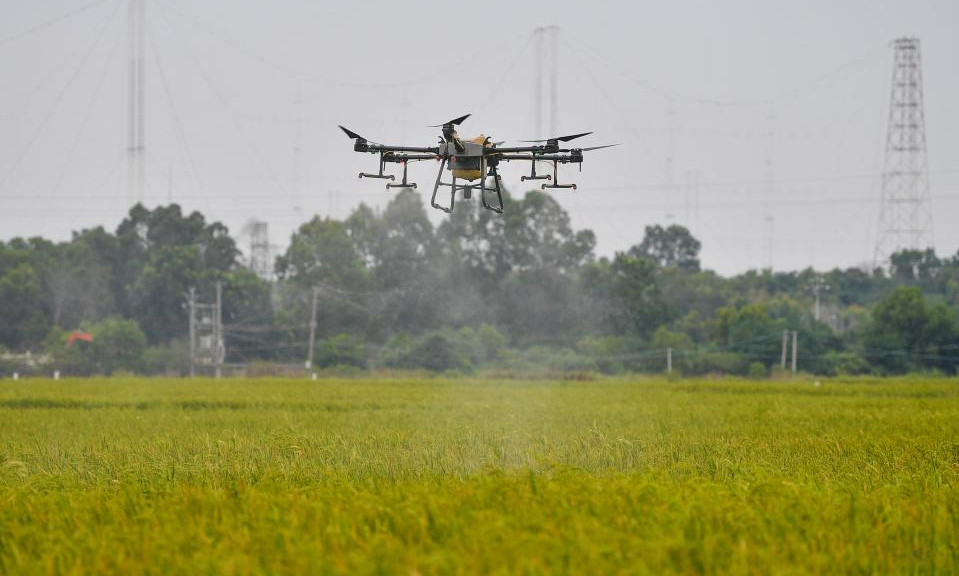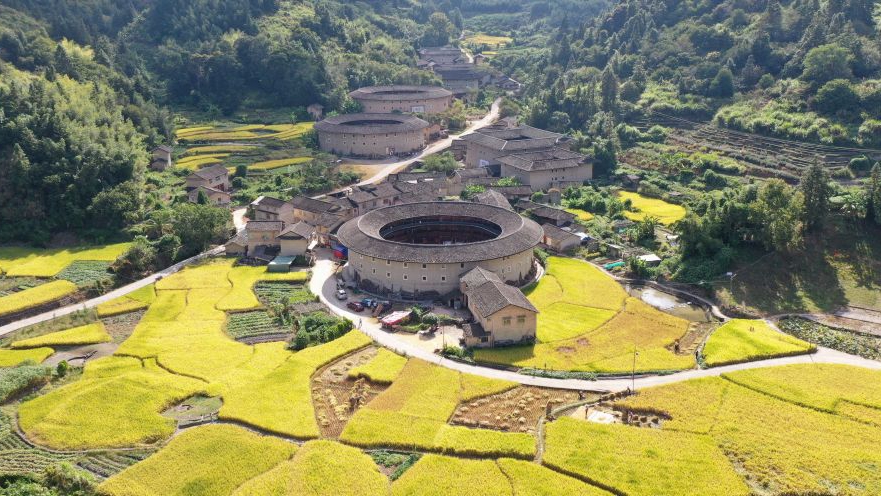Homestays help mountain village thrive
Editor's Note: A diverse group of people across the country from many sectors and backgrounds talk about the 20th National Congress of the Communist Party of China.
Wang Lijun drove for about 10 kilometers to pay a visit to the tomb of General Su Yu (1907-84) in Huangshan, Anhui province, on Thursday before the opening of the 20th National Congress of the Communist Party of China, which took place on Sunday.
Looking forward to the congress, Wang, who runs a homestay in the city's Tanjiaqiao township, wanted to pay his respects to the Party in this way.
Born in 1976 in the township's Xitan village, Wang migrated to neighboring Zhejiang province in 1999, and worked there as a cook and truck driver until 2016, when he returned home for business opportunities.
"I left my hometown because there were not many job opportunities, but returned as the area was becoming a popular tourism attraction," said Wang.
In the tomb is only part of the remains of Su, one of the most famous generals who fought hard for the founding of New China. Su later served as PLA Chief of Staff and was conferred the title of Senior General in 1955.
In July 1934, shortly before the Long March, the Red Army's then headquarters in Jiangxi province dispatched an army to move northward as vanguard troops — with Su being a key commander — to resist Japanese aggression.
Though Su had won numerous key battles in his later career, he said he could never forget the painful defeat in Tanjiaqiao by the Kuomintang army, with thousands of his soldiers dying there, according to Su's memoir.
According to his last will, part of the general's remains was buried in Tanjiaqiao out of respect for the soldiers who sacrificed their lives there.
"Though General Su experienced painful losses here, we villagers in the New Era have gained a lot," said Wang.
In the first two years after Wang's return, he participated in the rural area's infrastructure construction, as the local authorities had invested a lot in improving residents' lives and developing the area's tourism resources.
Located at the foot of the renowned Huangshan Mountain, or Yellow Mountain, Tanjiaqiao township is now the eastern gateway to the scenic area.
In recent years, Huangshan authorities have been striving to develop tourism, bringing a lot of opportunities to residents.
In 2018, Wang decided to renovate his house and yard for a homestay business. Xitan Yard, the homestay, started operation in 2019, becoming Xitan village's first of the type.
Now with three employees from the village, Wang said he personally sees an annual income of more than 400,000 yuan ($55,600) from the homestay.
In addition, he established a company with partners to rent several more vacant houses from other villagers to develop more homestays.
"We give the villagers up to 10,000 yuan a year for each such house, depending on its condition," said Wang, whose village has 132 households and 430 residents.
During the weeklong National Day Holiday earlier this month, his own homestay and others shared with partners were always fully occupied.
On a sunny day during the holiday, Wang sat in his yard enjoying not only the sunshine but more importantly listening to a band of young men playing instruments and singing.
"The band was here for more than a week until Thursday for performances via livestream and touring around the city's numerous tourism attractions," said Wang.
"Without the improving infrastructure and environment, the area would have remained an impoverished mountainous village and our business would be impossible," said Wang.
"The CPC has been making great efforts to improve the people's welfare. We can see it, feel it and sincerely appreciate it," said Wang.
A guideline from 2021 projects said that the number of homestay businesses in the province will surpass 10,000 by 2025.
So far, Huangshan has more than 2,500 homestays across the city, bringing in revenue of more than 1.5 billion yuan last year, according to the Huangshan government.
As the city strives to build itself into a globally renowned eco-friendly destination for leisure tourism, Wang believes that the villagers' lives would keep improving.
"It will be like advancing from one victory to another," said Wang.
Photos
Related Stories
- Wuxi County in SW China's Chongqing makes efforts in developing local tourism
- China's tourism sees new trends during National Day holiday
- Bringing new dynamism to villages: Xizhou in the eyes of an American
- Tourism revitalizes China's northernmost village
- Feature: Macao sees tourism recovery during National Day holiday
Copyright © 2022 People's Daily Online. All Rights Reserved.









